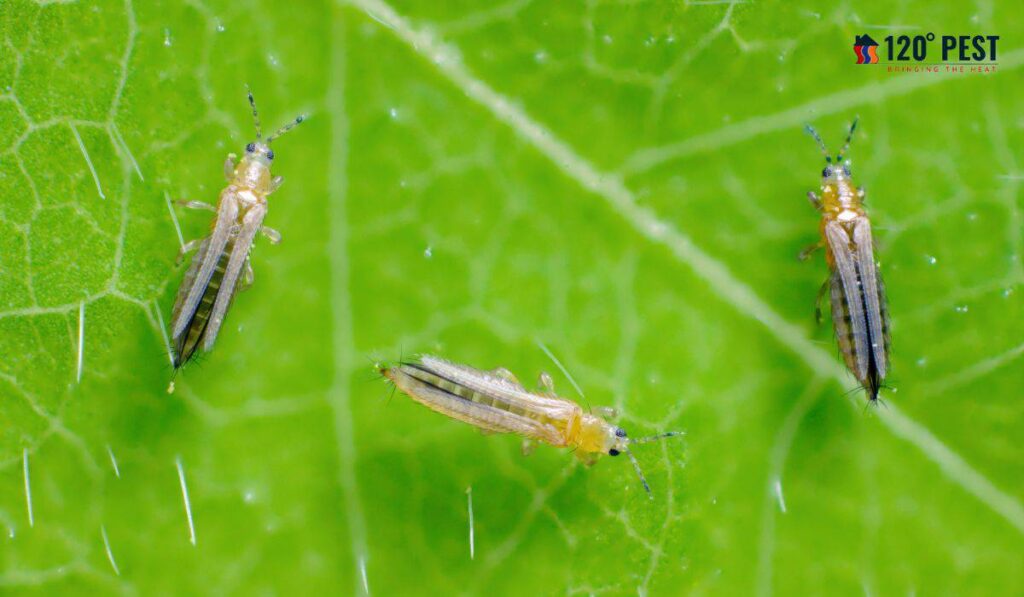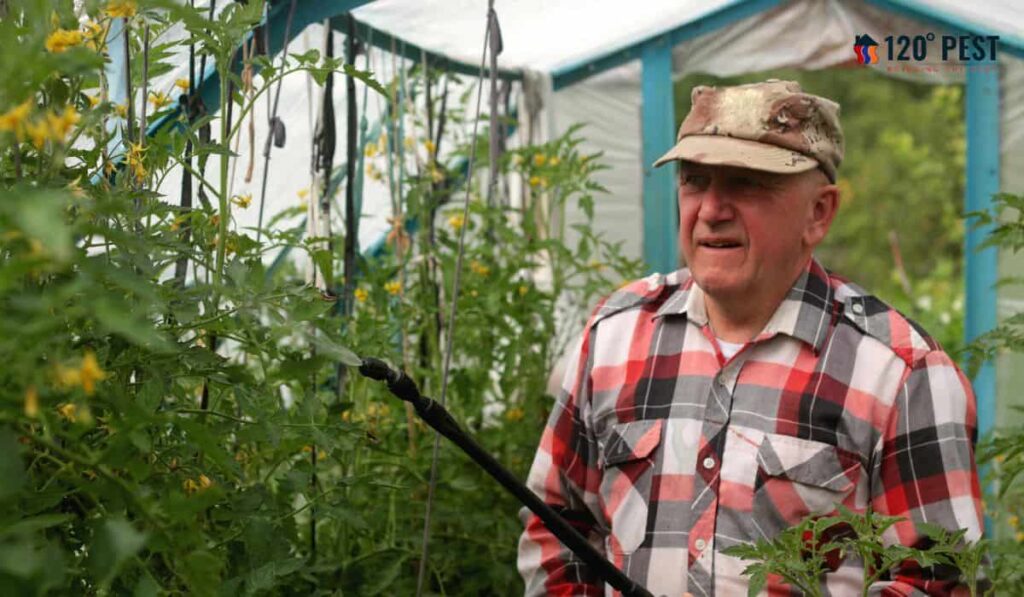A flourishing garden is a sight to behold, but it’s no secret that pests can quickly turn your garden of dreams into a nightmare.
While chemical pesticides may seem like a quick fix, they can harm the environment, beneficial insects, and even your health.
Instead, consider embracing natural pest control methods to protect your garden and keep it thriving.
In this guide, we’ll explore a variety of eco-friendly tactics to safeguard your garden against common pests.
Beneficial Insects: Your Garden’s Best Friends
Nature has its own army of pest controllers, and you can recruit them to defend your garden.
Ladybugs, lacewings, parasitic wasps, and predatory beetles are all-natural allies that prey on garden pests.
To attract these beneficial insects, plant nectar-rich flowers like marigolds, yarrow, and dill.
These floral havens offer food and shelter to the good bugs, ensuring they stick around to keep your garden pest-free.
Companion Planting: Allies in the Soil
Certain plants have a knack for repelling or confusing pests when planted alongside susceptible crops.
Marigolds, for instance, deter nematodes, while basil helps keep aphids and flies at bay.
Investigate companion planting combinations suitable for your region to create a mutually beneficial environment for your garden.
Crop Rotation: Outsmarting Pests
Pests often specialize in attacking specific plant families. Foil their plans by rotating your crops each season.
Crop rotation disrupts the pest’s life cycle and reduces their population over time.
It’s a simple, yet effective strategy to maintain a pest-free garden.
Mulch Magic: Nature’s Pest Barrier
Organic mulch, such as straw, wood chips, or leaves, serves as a multi-purpose tool in your garden.
Not only does it help conserve soil moisture and suppress weeds, but it also acts as a physical barrier, making it difficult for pests to reach your plants.
Apply a generous layer of mulch around the base of your plants for maximum effect.
Neem Oil: Nature’s Insect Repellent

Derived from the neem tree, neem oil is a natural insecticide and fungicide.
It’s effective against a wide range of garden pests. Mix it with water and spray it on your plants, paying extra attention to the undersides of leaves.
Neem oil not only repels pests but also disrupts their feeding and breeding habits.
DIY Garlic and Chili Pepper Spray: A Fiery Deterrent
Create a homemade pest-repelling spray by blending garlic and chili peppers with water, straining the mixture, and adding a few drops of dish soap.
The fiery concoction repels a variety of pests and can be sprayed directly on your plants.
Soapy Solution: Smothering Soft-bodied Pests
Soft-bodied pests like aphids and mites can be controlled with a simple soap spray.
Mix a few drops of liquid soap (preferably castile soap) with water and spray it on affected plants.
The soapy water disrupts the pests’ cell membranes, suffocating them.
Diatomaceous Earth: An Abrasive Shield
Food-grade diatomaceous earth is a natural and abrasive substance that can help protect your garden against crawling pests.
Sprinkle it around the base of your plants to create a barrier.
The tiny, sharp particles damage the exoskeletons of insects and keep them at bay.
Resistant Varieties: Nature’s Defense
Consider planting vegetable and fruit varieties that are naturally resistant to common pests.
These plant varieties often have built-in defenses that make them less appealing to garden intruders.
Hand-Picking: Old-School Pest Control
Don’t underestimate the power of manual intervention.
Regularly inspect your plants and remove pests like caterpillars, snails, and slugs by hand.
Placing them in a bucket of soapy water is an effective way to eliminate them without resorting to chemicals.
Trap Crops: Diverting Pest Attention
Some plants act as decoys, attracting pests away from your main crops. Nasturtiums and radishes are excellent trap crops that can divert pest attention and help protect your primary plants.
Beneficial Nematodes: Underground Pest Control
To combat soil-dwelling pests like grubs and root-eating nematodes, consider introducing beneficial nematodes into your soil.
These microscopic allies prey on garden-damaging pests beneath the surface.
Organic Fertilizers: Nourish Your Garden Naturally
Opt for organic fertilizers over synthetic ones.
Organic fertilizers promote healthier, more resilient plants that are better equipped to withstand pest pressure.
Conclusion
In conclusion, safeguarding your garden through natural pest control methods not only protects your plants but also preserves the delicate balance of the ecosystem.
By working with nature rather than against it, you can enjoy a bountiful and pest-free garden while promoting a healthier environment for all.

So, roll up your sleeves, embrace these eco-friendly strategies, and watch your garden thrive.
Your green oasis will thank you, and so will the planet.
FAQs
Are natural pest control methods as effective as chemical pesticides?
Natural pest control methods can be highly effective when properly implemented. While they may not provide instant results like some chemical pesticides, they offer long-term solutions that are safer for the environment, beneficial insects, and your health. The key is to be patient and persistent in applying these methods.
How can I attract beneficial insects to my garden?
To attract beneficial insects, plant a variety of nectar-rich flowers such as marigolds, yarrow, and dill. Create habitats like insect hotels or brush piles to offer shelter. Avoid using chemical pesticides that can harm these helpful creatures.
What are the benefits of companion planting?
Companion planting can help deter pests, improve soil health, and enhance overall plant growth. It fosters a natural balance in your garden by encouraging beneficial interactions between different plant species.
How often should I rotate my crops?
Crop rotation should be practiced on an annual or seasonal basis. It’s essential to move plants from one location to another in a systematic manner to disrupt the life cycles of specific pests and diseases.
Can I use natural pest control methods in an indoor garden or on houseplants?
Yes, many natural pest control methods are suitable for indoor gardens and houseplants. Beneficial insects, soap sprays, and neem oil can be used effectively in indoor settings to combat common pests.
Is diatomaceous earth safe for pets and humans?
Food-grade diatomaceous earth is generally safe for pets and humans when used as directed. However, it’s best to apply it in areas where pets and children don’t have direct contact with it, as it can be an irritant if inhaled in large quantities.
Can I use these methods in an organic garden?
Absolutely! Natural pest control methods align perfectly with organic gardening practices. They are an integral part of maintaining an organic garden without the use of synthetic pesticides or fertilizers.
How do I know which plants are resistant to pests?
Research plant varieties that are known for their resistance to common garden pests. You can often find this information on seed packets or by consulting with local gardening experts.
What is the best time to hand-pick pests from my plants?
Hand-picking pests is most effective during the early morning or late evening when they are typically more active. Inspect your plants regularly to catch pests before they cause significant damage.
Are natural pest control methods safe for the environment?
Yes, natural pest control methods are eco-friendly and safer for the environment compared to chemical pesticides. They help maintain biodiversity, protect beneficial insects, and reduce the pollution of water and soil.




